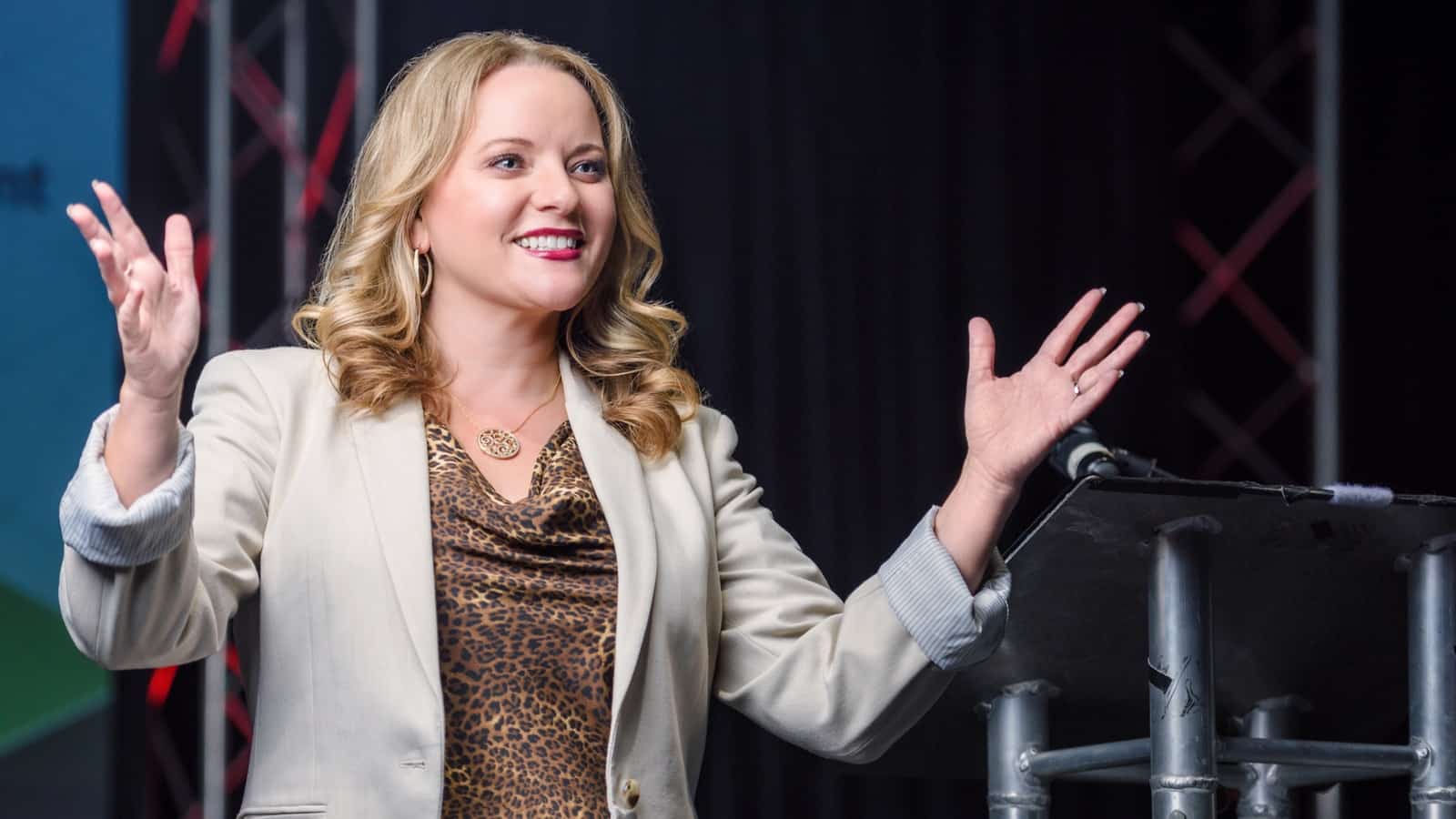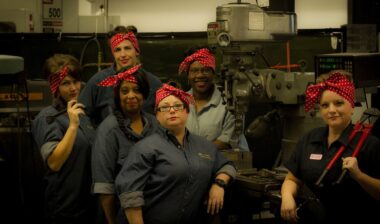CEO Gina Radke Talks Female Leadership—and Restroom Lines

Who says longer lines for the women’s restroom are a good thing? Manufacturing CEO Gina Radke does. And here’s why—longer lines for the bathroom at manufacturing conferences would mean that more women worked in the industry, where they now only make up a third of the labor force.
Radke used to take photos of the bathroom doors at these conferences and post them to social media, highlighting the absence of other women in line. And if she has anything to say about it, those lines will be growing a lot longer.
The CEO of Galley Support Innovations, Radke likes to say that she got into manufacturing by mistake, and then learned it from the ground up.
- When she and her husband bought the company—which specializes in interior hardware for aircraft—she thought she’d focus on the marketing side. But as she puts it, she fell in love with the process of turning raw materials into a finished product.
- They moved the company from California to Arkansas, and soon, she had learned to run all the machines on the floor and immersed herself in every aspect of the business.
Along the way, she couldn’t help but notice that few other women had the same trajectory. Radke was often mistaken for an assistant and rarely encountered other women in leadership positions. She was determined to change that.
- “If you can see it, you can be it”: Radke has worked to make herself more visible in the manufacturing world, as a role model for other women. The company even designed a calendar in which their female machinists posed as Rosie the Riveter.
- STEP honoree: In 2019, she was a recipient of the Manufacturing Institute’s STEP Ahead Awards—a national honor for accomplished women in the industry. Radke says the conference for honorees was the first time she had been around other women leaders in the industry. It made her feel a sense of relief and encouragement, and she resolved to step up her mentorship so more women would feel the same.
- “I could write a book”: Inspired by her experience at the STEP conference, Radke wrote a book called “More Than.” In it, she offers guidance to both women and men, so they can achieve a more equitable workforce together.
And there’s more: Under Radke’s leadership, the company has been a pioneer in hiring formerly incarcerated individuals and people who have been involved in the criminal justice system. It also created programs to train kids who age out of foster care, helping them transition into well-paying jobs.
The last word: “To women who haven’t considered manufacturing: consider it,” says Radke. “It’s a great field to be in. We need everything, so you get to be creative and process driven. And you have an opportunity to break stereotypes and shatter the status quo.”
